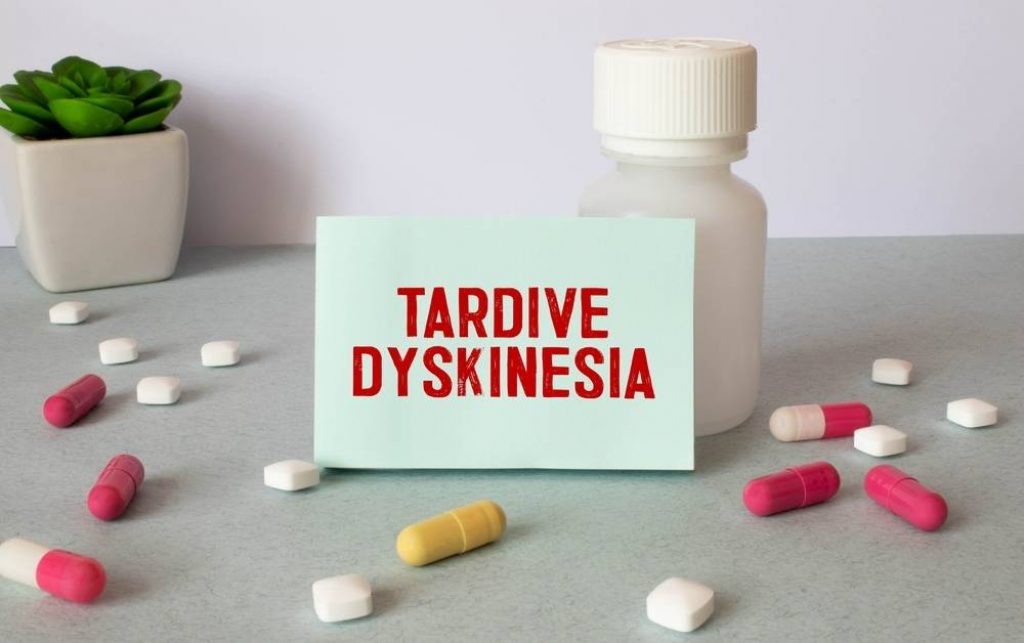
Medications That Lead To Tardive Dyskinesia
Psychiatric drugs are notorious for their various common side effects that, unfortunately, can turn into a lasting condition in many patients. Some of these side effects have a serious impact on the patient’s ability to function and their overall quality of life. Tardive Dyskinesia is one of these debilitating conditions.
Related Topics (Sponsored Ads):
Tardive Dyskinesia (TD) occurs most often as a side effect of neuroleptic (antipsychotic) drugs, which are given to patients who suffer from certain disorders, particularly schizophrenia or bipolar disorder. TD has varying levels of severity from mild to extreme, and causes involuntary and uncontrollable movements of the arms, legs, fingers, toes and face, such as twitching and jerking, grimacing, lip smacking, sticking out the tongue and more. In the more severe cases, the torso sways and the pelvic area makes thrusting motions as well.

Important Facts Regarding TD
Neuroleptic and all types of neurological drugs affect every patient differently. Some patients may not get any significant symptoms or side effects at all, but it is estimated that around 50,000 people in the US alone get TD, with 50-70 percent of mild cases, and 3 percent severe. Around 30% of patients develop long term TD.
Your risk is greatly increased the longer you take your medication, if you’re female, if you have diabetes or dementia, if you’re of African or Asian descent, if you take a large daily amount, or if you’re taking the old version of the drug, also referred to as first generation drugs. Additionally, the earlier the symptoms are detected, the easier it is to treat.
Moreover, there are two kinds of TD:
Orofacial Dyskinesia- This kind affects your facial movements and can cause sounds to emanate from your throat. Symptoms include: Sticking out your tongue without trying, blinking your eyes fast, chewing, smacking or puckering your lips, puffing out your cheeks, frowning and grunting.
Limb Dyskinesia- This kind affects the movements of your limbs and sometimes your torso as well. Symptoms include: Wiggling your fingers, tapping your feet, flapping your arms, thrusting out your pelvis, and swaying from side to side.
Additionally, there are several conditions that share similar symptoms with TD, such as Parkinson’s, Tourette Syndrome, Dystonia, Cerebral Palsy and Huntington’s Disease. Therefore, your doctor will first administer tests to rule them out before the official diagnosis or prescribing medication to counteract it.
The following medications are strongly linked to the development of Tardive Dyskinesia.
Chlorpromazine And Fluphenazine
Chlorpromazine is a phenothiazine (FEEN-oh-THYE-a-zeen) that is used to treat psychotic disorders, such as schizophrenia or manic-depression in adults. It is also used in adults to treat nausea and vomiting, anxiety before surgery, chronic hiccups, acute intermittent porphyria, and symptoms of tetanus.
Fluphenazine is another phenothiazine antipsychotic medicine that is also often used to treat psychotic disorders, such as schizophrenia.
Haloperidol And Perphenazine
Haloperidol is prescribed for more than just schizophrenia. It is also effective in the management of Tourette Syndrome symptoms, such as twitching and speech tics.<p. Perphenazine is yet another kind of phenothiazine antipsychotic medicine. Apart from treating psychotic disorders such as schizophrenia, and mental disorders such as severe depression, Perphenazine is also used to control severe nausea and vomiting.
Doxepin
Doxepin is a tricyclic antidepressant. The capsules and oral concentrate (liquid) are used to treat symptoms of depression and/or anxiety associated with alcoholism, manic depression, or other mental illness. Doxepin tablets (Silenor) are used to treat insomnia in people who have trouble staying asleep.
Fluoxetine
Fluoxetine is a selective serotonin reuptake inhibitor (SSRI) antidepressant. Fluoxetine inhibits the uptake of serotonin by nerve cells (neurons) and can help people with depression, panic, anxiety, or obsessive-compulsive symptoms. It is also used to treat major depressive disorder, bulimia nervosa (an eating disorder), obsessive-compulsive disorder, panic disorder, and premenstrual dysphoric disorder (PMDD).
Also, Fluoxetine is sometimes used together with another medication called olanzapine (Zyprexa) to treat manic depression caused by bipolar disorder. This combination is used to treat depression only if at least two other medications have been unsuccessful in managing and treating symptoms.
Trazodone
Trazodone is an antidepressant that belongs to a group of drugs called serotonin receptor antagonists and reuptake inhibitors (SARIs). While trazodone is not a true member of the selective serotonin reuptake inhibitors (SSRIs) class of antidepressants, it does still share many properties of the SSRIs.
It is used to treat major depressive disorder. It may help to improve your mood, appetite, and energy level as well as decrease anxiety and insomnia related to depression. Trazodone works by helping to restore the balance of a certain natural chemical (serotonin) in the brain.
Final Thoughts
Because side effects are so common with all drugs, especially psychiatric drugs, it’s extremely important to pay close attention to any sudden changes in typical speech, behavior and demeanor, no matter how subtle.
Our physical, mental and emotional health are all of equal importance, and sometimes medications are necessary to manage symptoms and improve quality of life. However, if you or a loved one is experiencing any new symptoms after starting a prescribed medication drug, report it to your doctor immediately. He/she will either reduce the daily amount, or take it away completely and prescribe a different medication. If need be, your doctor will also prescribe a medication to counteract the TD symptoms.
Lastly, medications must be taken carefully. Never go above or below the prescribed daily dose. Any abuse or neglect of the medication can lead to worsening of symptoms or even fatal consequences, such as suicide, heart attack or stroke.




